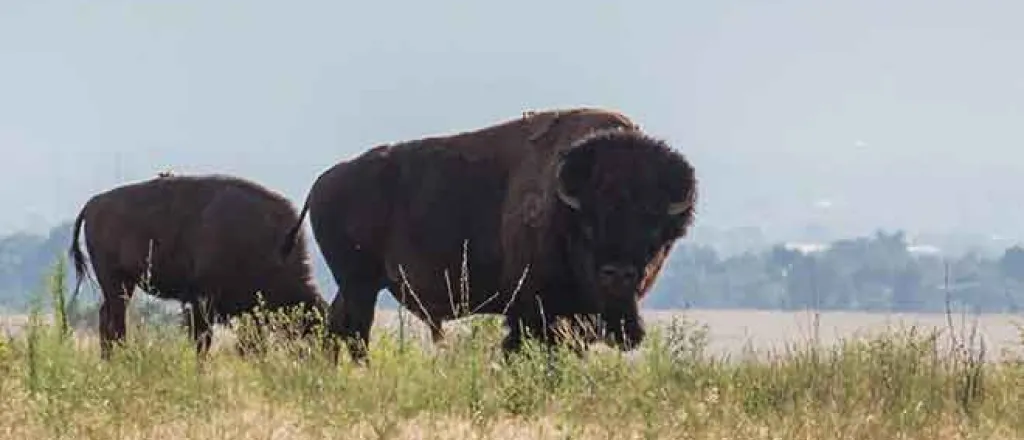
In South Dakota, bison restoration part of food sovereignty for natives
(Greater Dakota News Service) South Dakota is home to one of the nation's largest American Indian reservations, and the area is part of a movement among tribal nations to take back control of their food systems. That includes bison restoration. This effort is among the latest food sovereignty initiatives led by the Thunder Valley Community Development Corporation, a nonprofit serving
Lakota people in the Pine Ridge Reservation.
Chance Weston, food sovereignty director, Thunder Valley Community Development Corp., said the emerging plan involves managing bison through regenerative agriculture, which centers around maintaining soil health and integrating the surrounding ecosystem.
"So, it's one thing to quote-on-quote run buffalo in an ag operation, but also, it's quite another to take on such another level in terms of, 'How are we restoring the soil?," he said "How are we restoring the relationships that were in there?'"
Those relationships include connections bison have long had with prairie dogs. These approaches harken back to land management carried out by tribal ancestors. Thunder Valley's programs are viewed as a way to address barriers for Pine Ridge communities in accessing healthy foods. As for bison, Weston said there are still hoops to jump through, including adding local processors.
Weston added a key component of their practices involves demonstrating them to younger populations so they can carry on the food sovereignty movement.
"We wanna see this huge new wave of new producers and growers that have this newfound knowledge," Weston added.
He suggested it is a blend of learning techniques from a scientific standpoint, while also seeing how previous generations developed food and land management systems. Earlier this month, the Interior Department announced $25 million dollars from the Inflation Reduction Act will go toward promoting bison conservation, including supporting bison transfers to tribal nations.















